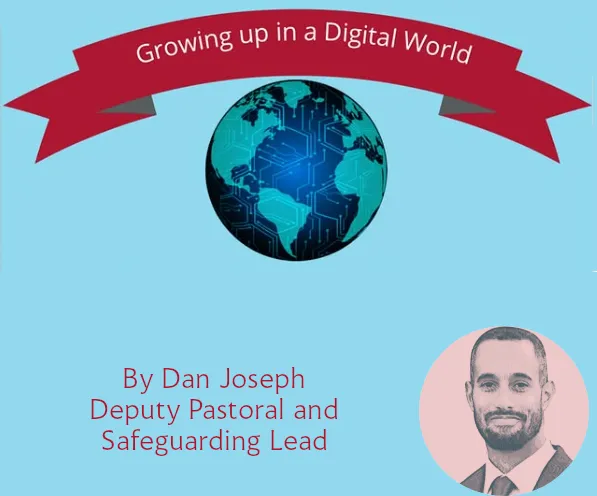
Growing Up in a Digital World: Supporting Our Children through the Tech Maze
At Great Ballard School, our wellbeing mission goes beyond the ying and yang of pastoral support and academic excellence. We strive to nurture curious, compassionate, and resilient young people who are ready to face the complexities of the world beyond our gates.
Rooted in a play-based childhood and a unique, broad curriculum, we provide a sanctuary where childhood is protected, creativity is celebrated and relationships come first.
But we’re not naïve to the challenges that await. As our pupils grow into their teenage years, they face a digital landscape more intense, addictive, and fast-moving than ever before. Smartphones, social media, and 24/7 connectivity are shaping their brains, their wellbeing, and their sense of self. That’s why it’s our responsibility, in partnership with families, to actively prepare them with the tools and self-awareness to navigate the choppy waters of ‘the teenage years’ and the wider world.
Navigating the world of tech, smartphones, and social media can feel overwhelming, not just for our children, but for us as parents and educators too. At a recent talk with our Year 8 and prep school parents, we explored how growing up in a digital world is impacting young people’s mental health and development. And most importantly, what we can all do to help develop our student’s skills to better cope with what lies ahead.
Since 2012 (the year smartphones and social media truly took off) we've seen a doubling in teenage anxiety and depression. Girls, in particular, are feeling the weight of comparison culture, social isolation and pressure to be ‘always on’. At the heart of this is the developing teenage brain. Whereas, boys are feeling more and more disconnected, and without the tools to firstly identify how they are feeling, and more prevalently, the skills to be able talk about them.
What’s behind the shift? Teen brains are still under construction. The prefrontal cortex (the area responsible for decision-making, impulse control, and emotional regulation) isn’t fully developed until the mid-20s. Meanwhile, the dopamine system is in overdrive during adolescence, making social media platforms like TikTok, Instagram and Snapchat feel intensely rewarding, and intensely addictive. The result? Young people crave the validation of likes and comments, but when that dopamine hit doesn’t come, anxiety and insecurity can follow. Add in blue light disrupting sleep, constant notifications, and the fear of missing out (FOMO) and suddenly we have a perfect storm.
Technology isn’t the enemy – but unbound, unguided use of it can seriously harm wellbeing. Drawing on the latest research, including psychologist Jonathan Haidt’s powerful work on teenage mental health, we’re encouraging families to consider four new cultural norms for raising healthier, happier teens:
1. No smartphones before secondary school
Delaying access to smartphones gives children more time to build face-to-face social skills, emotional resilience, and a balanced sense of self.
2. No social media before age 16
The current platforms weren’t built for the developing teenage brain. Holding off helps children avoid the most intense waves of comparison, peer pressure and digital distraction.
3. Phone-free schools
We have always been a phone-free school here at Great Ballard and we are delighted to see more and more schools adopting this approach. Creating a screen-free environment supports real-world connection, focus, and learning. Students report feeling calmer and more present.
4. Encourage independent play and free time
Unstructured time – outdoors, with friends, or in creative play – builds problem-solving skills, confidence, and emotional wellbeing. This is why we prioritise outdoor learning wherever possible. Every age group in the school has timetabled lessons for outdoor learning and this continues right through to GCSE, ensuring that all our students benefit from the wellbeing benefits of time in nature.
Practical Takeaways for Families
Helping your child build healthy digital habits isn’t about control – it’s about connection, consistency and curiosity. Here are some simple ideas that really help:
• Create phone-free zones at home: for example, the dinner table or bedrooms.
• Set screen time boundaries together, with clear expectations and rewards.
• Talk regularly about online experiences, and what they’re seeing online: not just risks, but their favourite content and creators too.
• Model what healthy tech use looks like: children notice when we scroll through dinner or reply to emails at bedtime – they know if we’re present or distracted.
• Protect sleep: screens off at least an hour before bed; ideally, devices charge outside the bedroom.
• Try family digital detox days: walk, play, cook, talk – rewire joy away from the screen.
At Great Ballard, we’re committed to working hand-in-hand with families to raise young people who are digitally aware, emotionally intelligent, and deeply rooted in human connection. Let’s keep talking to our children and to each other, and together, we can build a culture where technology is a tool, not a trap.
Trusted Resources for Families
Internet Matters: Expert guidance, age-specific tips, and parental controls. https://www.internetmatters.org/
NSPCC – Net Aware: Reviews of apps, games and safety settings. https://www.net-aware.org.uk/
Common Sense Media: Age ratings and advice on media and screen time. https://www.commonsensemedia.org/
Childnet: Family agreements and online safety education. https://www.childnet.com/
Dan Joseph - Pastoral Deputy and Safeguarding Lead